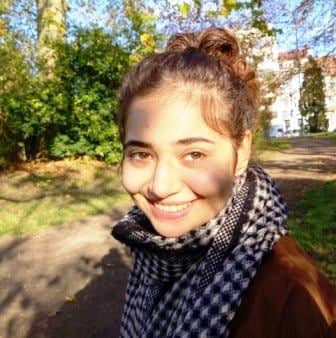


Letitia Popa: What is documentary

This essay is written by Romanian film student Letitia Popa. It follows essays written by students from Zelig Film School in Bolzano according to the same exercise described below:
What is a documentary? A few weeks ago, me and my colleagues from the Documentary Department at UNATC Bucharest, participated in a workshop with Tue Steen Müller. We had interesting discussions on what it means to make documentaries and what future prospects we might have, after graduation. He proposed a very interesting exercise; to describe what a documentary is, in only three, firsthand words. Afterwards, I was asked to write an essay reflecting on what it means for me to make documentaries, reflecting on these words. I found it very interesting that after taking a look at what we came up with, I could place these words together in 5 different piles.
Everyday life, stories, characters, reality based; these were some of the words used by us. They represent our sources of inspiration for working with non-fictional storytelling. But in a way, I prefer to avoid distinguishing fictional and non-fictional; as I feel that these concepts can serve as basis for any kind of storytelling.
We are used to thinking in dualistic terminology and comparison, but maybe we can try to perceive them as much more similar, rather than opposites. Because both genres borrow esthetics and methodologies from each other, I feel that many times, the border between the two is very thin. However, for this essay, I will speak in dualistic terms.
Highlighting this, I feel that all of us perceive documentaries as storytelling devices, so as a plot-driven construction, inspired by our relationship with the world around us. This takes me to the next set of words: trial, encounter, transformation, which can be related to both our own trials and encounters, or to the narrative mechanisms we use to tell stories. For example, when we speak of these words, we can refer to our relationship with the documented reality, which impacts and transforms us and our protagonists along the way, or to plot devices we sometimes use in narrating these events.
Interestingly enough, these narrative devices are so embedded in our own perceptions that we sometimes even project them onto our own lives; we look back at our own history and dramatize simple events, which later become catalysts, midpoints, low points, and final battles, with a hope for a catharsis at the end.
And so, many times it is hard for us to speak directly about the things that happen with us throughout life, as the first impulse is to hide our hardships, even though, when we make films, we mostly speak about ourselves. So then, when we’re documenting the lives of others, we speak together with our protagonists. We listen, and they speak. And then, when we share our films, a dialog happens; a space for witnessing, for others to see, identify, and question that which is recognized when seen in others.
The next pile of words is related to methodology: observation, witness, investigation, exploration, research, to find. These are methods we use to get closer, to understand, to make our suppositions and then to dissolve them, to process, to allow, and speak from a place of humility. And together with our cameras, we look at the world around us; we do it through time, trust, and presence. And when we trust in our instincts, something happens, an inner force that guides us how to film, when to film and when to stop.
The next pile of words is related to boundaries: sacrifice, invasion, persuasion, borderless. I feel that sometimes, in our processes, we face all kinds of limitations. And sometimes, it is exactly the limitations that we face which inspire us the most. We become more aware of our own gaze as filmmakers, and the responsibility that comes with it.
We must learn to maintain a strong level of awareness when we position ourselves in relation to the lives of others. As we witness moments of someone else’s reality and therefore, record it and interpret it creatively, we become responsible for what we show.
Personally, I prefer to let things unfold organically in my own process, and guide myself in relation to what I see and feel. And when I edit, I again, allow the material to guide me when constructing it. I like it when seeing is not forced, but recognized.
Finally, the last pile of words is directly related to the spectator, the act of seeing, and our expectations: information, emotion, and discovery. In that sense, we think of documentaries as either informative or with a different stake, where they reflect something we can sometimes call truthful. And I feel that one can only sense the real in comparison with the false, the same way we can feel the difference between imitation and becoming.
By addressing the topic of becoming, we can think of a process of change, be it within us, within others or with their stories. We work with that which we find truthful for ourselves, interpret it and create something else. And I believe this can be a truly creative and regenerative process, for us and our protagonists.